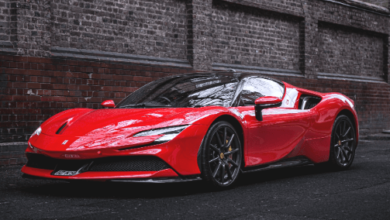The latest generation of fridge freezers

The latest generation of fridge freezers integrates several advanced technologies aimed at enhancing energy efficiency, food preservation, and user convenience. Here are the key innovations:
1. Inverter Compressors
Traditional compressors operate on an on-off cycle, which can be inefficient and noisy. Inverter compressors, however, can vary their speed to match the cooling demand more precisely. This results in more consistent temperatures, reduced energy consumption, and quieter operation. By maintaining a steady temperature, inverter compressors also help in better food preservation.
2. Dual and Multi-Cooling Systems
Modern fridge freezers often feature dual or multi-cooling systems that independently control the refrigerator and freezer compartments. This separation prevents the mixing of odors and ensures optimal humidity levels in each compartment. Dual cooling systems can also rapidly adjust to changes in temperature, ensuring food stays fresher for longer.
3. Smart Technology and IoT Integration
Internet of Things (IoT) technology has made its way into kitchen appliances, including fridge freezers. Smart refrigerators can connect to home Wi-Fi networks, allowing users to control and monitor their fridge remotely via smartphone apps. Features include temperature adjustment, door open alerts, and inventory management. Some models can even suggest recipes based on the contents of the fridge or allow users to view inside the fridge without opening the door through internal cameras.
4. Advanced Insulation Materials
New insulation materials, such as vacuum insulated panels (VIPs), are more effective than traditional polyurethane foam. VIPs are thin and provide superior thermal resistance, allowing fridge freezers to maintain optimal temperatures while using less energy. This innovation not only enhances energy efficiency but also maximizes internal storage space.
5. Antibacterial and Air Purification Technologies
To improve food hygiene, many modern fridge freezers come with antibacterial coatings and air purification systems. These technologies help to reduce the growth of bacteria and mold inside the refrigerator. For instance, some models use ultraviolet (UV) light or titanium dioxide coatings to kill bacteria and remove odors, ensuring a healthier environment for food storage.
6. Touchscreen and Voice Control
Touchscreen interfaces on fridge doors provide a user-friendly way to control settings, access recipes, and even leave digital notes. Additionally, integration with voice assistants like Amazon Alexa or Google Assistant allows users to control the fridge with voice commands, enhancing convenience.
7. Energy Efficiency Enhancements
With a growing emphasis on sustainability, new fridge freezers are designed to be more energy-efficient. Features such as adaptive defrost, which monitors usage patterns to optimize defrost cycles, and energy-efficient LED lighting contribute to lower energy consumption. Many modern models also comply with stringent energy standards and have high Energy Star ratings.
8. Flexible Storage Solutions
Innovative storage solutions, such as adjustable shelves, door-in-door designs, and modular compartments, offer greater flexibility in organizing and accessing food items. These features cater to varying storage needs and make it easier to keep the fridge organized.
Conclusion
The integration of these advanced technologies in new-generation fridge freezers significantly enhances their functionality, energy efficiency, and convenience. Inverter compressors, smart technology, advanced insulation, and antibacterial systems are just a few examples of how these appliances are evolving to meet modern consumer demands while promoting sustainability and better food preservation.






